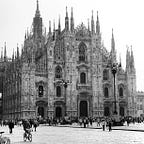The Emergence of Early French Opera
Based in Los Angeles, Marc David Broidy managed a wealth advisory firm that provided client-centered financial services. A classical music aficionado, Marc Broidy has a particular interest in opera and French cultural traditions.
The history of operatic production in France extends to the 17th century and a “golden age” of theatrical dramas written by the likes of Racine and Moliere. These were performed in Versailles and Paris for Louis XIV and the royal retinue of the Sun King.
Louis XIV appointed Jean-Baptiste Lully, who lived in Paris from his teen years on, as a royal dance-master and composer at age 21. Lully established the Royal Academy of Music in 1672 and conceived of an original lyric tragedy format in five acts. Among the Lully-penned operas staged from 1674 and 1686 were Bellerophon and Thesee. Working with Philippe Quinault as a lyrical collaborator, Lully’s works were unique for the era in emphasizing an intricately wrought narrative to match the music.
Succeeding Lully was Jean-Philippe Rameau, who only had his first dramatic opera, Hippolyte et Aricie staged at age 50. From 1733 to 1763, Rameau combined lyric tragedy with an opera-ballet format in a series of works that define Baroque opera. A hallmark of these works, which range from classical themes to interpretations of Voltaire, is rhythmic variety that emphasizes a “spirit of dance.”
This operatic tradition lives on today through regular revivals of Lully and Rameau, including those staged by the Paris Opera, which still goes by the formal name Royal Academy of Music.
